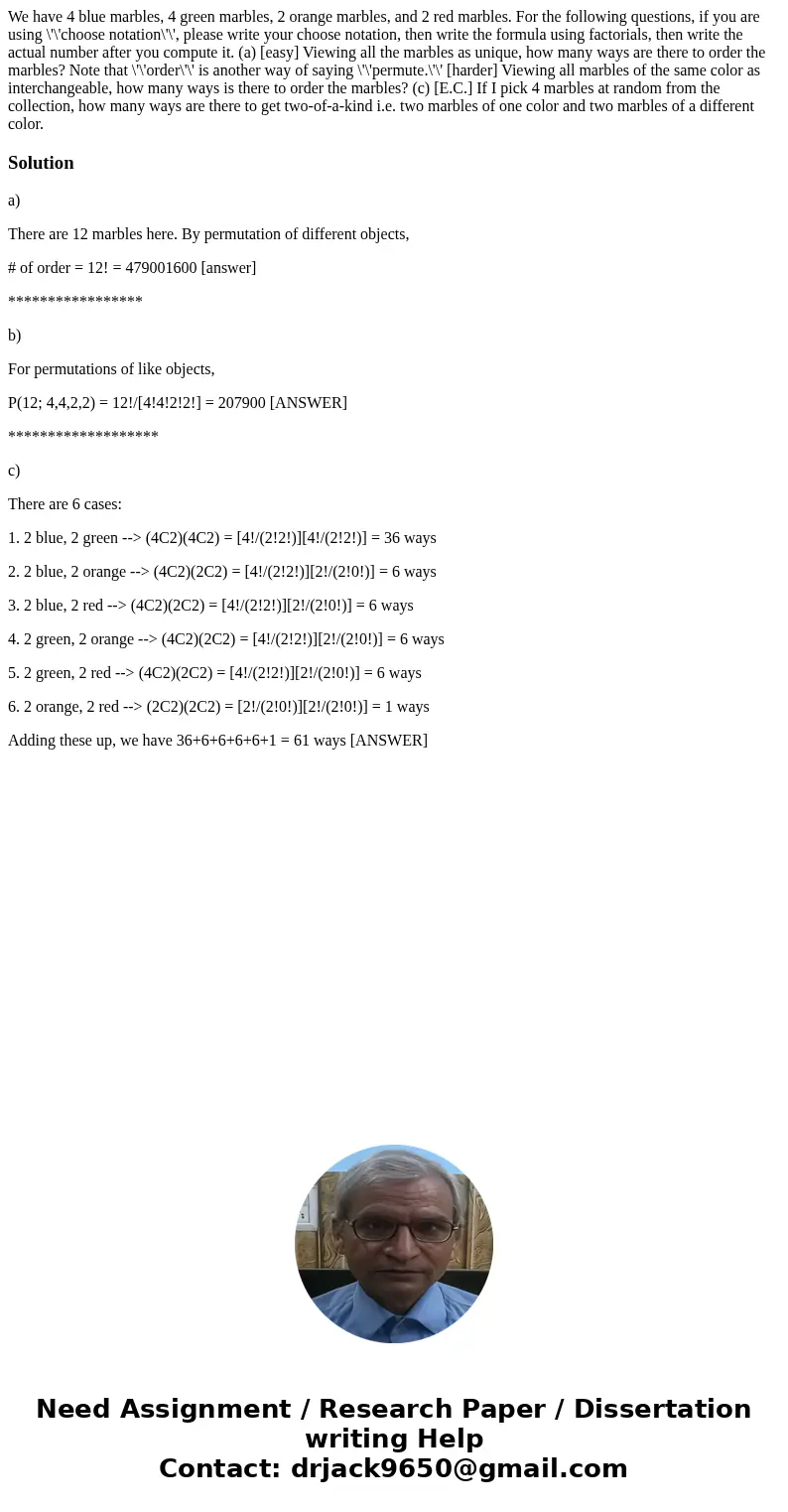We have 4 blue marbles 4 green marbles 2 orange marbles and
We have 4 blue marbles, 4 green marbles, 2 orange marbles, and 2 red marbles. For the following questions, if you are using \'\'choose notation\'\', please write your choose notation, then write the formula using factorials, then write the actual number after you compute it. (a) [easy] Viewing all the marbles as unique, how many ways are there to order the marbles? Note that \'\'order\'\' is another way of saying \'\'permute.\'\' [harder] Viewing all marbles of the same color as interchangeable, how many ways is there to order the marbles? (c) [E.C.] If I pick 4 marbles at random from the collection, how many ways are there to get two-of-a-kind i.e. two marbles of one color and two marbles of a different color. 
Solution
a)
There are 12 marbles here. By permutation of different objects,
# of order = 12! = 479001600 [answer]
*****************
b)
For permutations of like objects,
P(12; 4,4,2,2) = 12!/[4!4!2!2!] = 207900 [ANSWER]
*******************
c)
There are 6 cases:
1. 2 blue, 2 green --> (4C2)(4C2) = [4!/(2!2!)][4!/(2!2!)] = 36 ways
2. 2 blue, 2 orange --> (4C2)(2C2) = [4!/(2!2!)][2!/(2!0!)] = 6 ways
3. 2 blue, 2 red --> (4C2)(2C2) = [4!/(2!2!)][2!/(2!0!)] = 6 ways
4. 2 green, 2 orange --> (4C2)(2C2) = [4!/(2!2!)][2!/(2!0!)] = 6 ways
5. 2 green, 2 red --> (4C2)(2C2) = [4!/(2!2!)][2!/(2!0!)] = 6 ways
6. 2 orange, 2 red --> (2C2)(2C2) = [2!/(2!0!)][2!/(2!0!)] = 1 ways
Adding these up, we have 36+6+6+6+6+1 = 61 ways [ANSWER]

 Homework Sourse
Homework Sourse